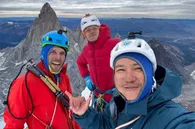November 11, 2023, marked the application deadline for the Zhas Galym grants, a recent 2021 addition to state measures aiming to support scientific youth. These grants provide promising postdoctoral students with financial support of up to ₸30 million. Spread across seven priority science areas, this opportunity is open to both Kazakh scientists within the country and those residing abroad.
QazMonitor explored what this initiative has to offer.
The problem and the solution
The Zhas Galym program aims to enhance national scientific development and bulk up the shrunken scientific staff from the past decades, attracting one thousand young scientists with academic degrees annually. The overarching goal is not only to attract talented youth but also to retain them, fostering projects across seven priority areas:
Ecology and Environment, and Rational Nature Management;
Energy, Advanced Materials Research, and Transportation;
Advanced Manufacturing, Digital and Space Technologies;
The National Intellectual Potential;
Life Sciences and Healthcare;
Sustainable Development of the Agricultural Sector;
National Security and Defense, and Biological Security.
As of now, there is about 22,000 scientific personnel in the country, of which only 36% are individuals under the age of 35, comprising 1172 scientists per million of Kazakhstan’s population. This indicator has decreased by half compared to 1990.
Who can participate?
The application is open to citizens of Kazakhstan or those who have received the status of a repatriate (kandas). Eligible candidates must hold a Doctor of Philosophy degree or an equivalent post-Soviet academic degree, such as either Doctor or Candidate of Science. Additionally, individuals who have completed the full course of a doctoral program at the time of application are also eligible.
Postdoctoral candidates, to be eligible, must be under 40 years old and should not have served as a scientific supervisor or been a member of a research group employed on a full-time basis within the last 12 months. An individual is allowed to engage in only one application as a postdoctoral researcher. Moreover, young scientists whose projects received approval and funding in prior Zhas Galym grant competitions (for 2021-2023 and 2022-2024) are ineligible to participate in future competitions.
Grant conditions
In the next two years, the government plans to allocate ₸9 billion for one thousand grants, distributed as follows: ₸3 billion in 2024, ₸3 billion in 2025, and ₸3 billion in 2026. Financing for each project with an implementation period of up to 36 months is capped at ₸30 million, with ₸10 million allocated for each year from 2024 to 2026.
NOTE: these grants are designated to cover the expenses of applied and fundamental scientific research and its implementation within the framework of the postdoctoral program.
Under this initiative, participants will engage in research work at any scientific organization or university of their choice. Young scientists can expect a monthly salary of around ₸500,000 for three years.
Furthermore, for researchers who have completed the doctoral program but faced challenges in defending their dissertation on time, Zhas Galym offers the opportunity to do so within a year of participation.










